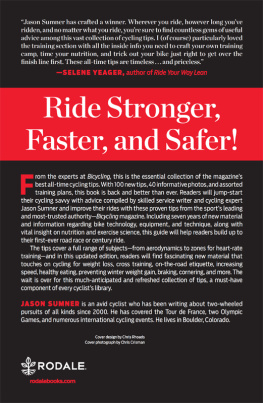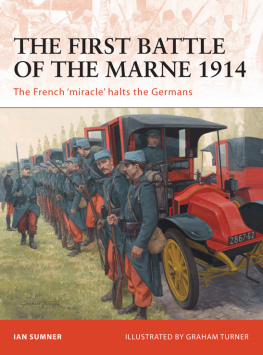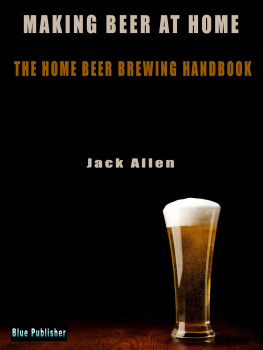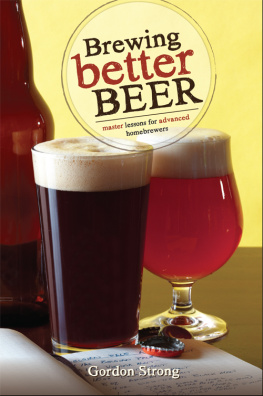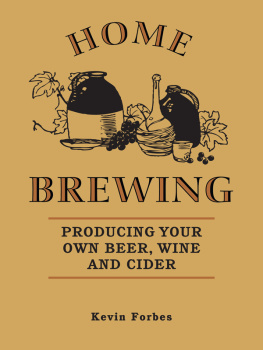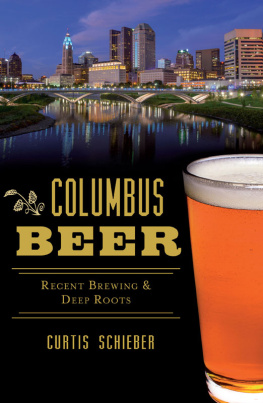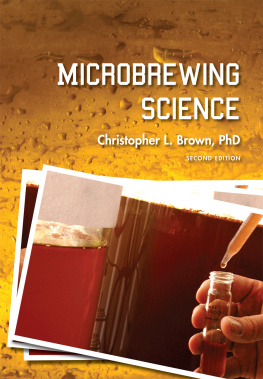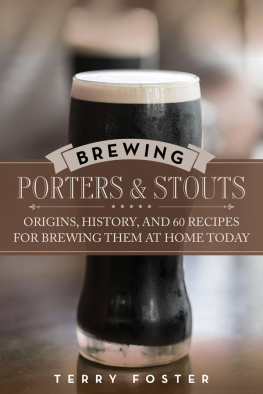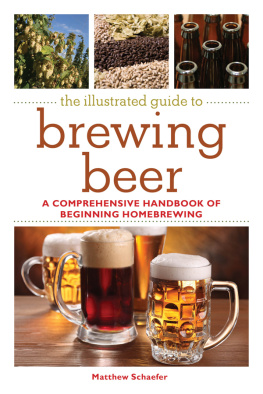Sumner - Brewing science, technology and print, 1700-1880
Here you can read online Sumner - Brewing science, technology and print, 1700-1880 full text of the book (entire story) in english for free. Download pdf and epub, get meaning, cover and reviews about this ebook. City: London, year: 2013, publisher: Routledge;Pickering & Chatto, genre: Detective and thriller. Description of the work, (preface) as well as reviews are available. Best literature library LitArk.com created for fans of good reading and offers a wide selection of genres:
Romance novel
Science fiction
Adventure
Detective
Science
History
Home and family
Prose
Art
Politics
Computer
Non-fiction
Religion
Business
Children
Humor
Choose a favorite category and find really read worthwhile books. Enjoy immersion in the world of imagination, feel the emotions of the characters or learn something new for yourself, make an fascinating discovery.

- Book:Brewing science, technology and print, 1700-1880
- Author:
- Publisher:Routledge;Pickering & Chatto
- Genre:
- Year:2013
- City:London
- Rating:3 / 5
- Favourites:Add to favourites
- Your mark:
- 60
- 1
- 2
- 3
- 4
- 5
Brewing science, technology and print, 1700-1880: summary, description and annotation
We offer to read an annotation, description, summary or preface (depends on what the author of the book "Brewing science, technology and print, 1700-1880" wrote himself). If you haven't found the necessary information about the book — write in the comments, we will try to find it.
Brewing science, technology and print, 1700-1880 — read online for free the complete book (whole text) full work
Below is the text of the book, divided by pages. System saving the place of the last page read, allows you to conveniently read the book "Brewing science, technology and print, 1700-1880" online for free, without having to search again every time where you left off. Put a bookmark, and you can go to the page where you finished reading at any time.
Font size:
Interval:
Bookmark:

Published by Pickering & Chatto (Publishers) Limited
21 Bloomsbury Way, London WC1A 2TH
2252 Ridge Road, Brookfield, Vermont 050369704, USA
www.pickeringchatto.com
All rights reserved.
No part of this publication may be reproduced, stored in a retrieval system, or transmitted in any form or by any means, electronic, mechanical, photocopying, recording, or otherwise without prior permission of the publisher.
Pickering & Chatto (Publishers) Ltd 2013
James Sumner 2013
To the best of the Publishers knowledge every effort has been made to contact relevant copyright holders and to clear any relevant copyright issues. Any omissions that come to their attention will be remedied in future editions.
BRITISH LIBRARY CATALOGUING IN PUBLICATION DATA
Sumner, James (James Brinton) author.
Brewing science, technology and print, 17001880. (Science and culture in the nineteenth century)
1. Brewing History 18th century. 2. Brewing History 19th century. 3. Beer industry History 18th century. 4. Beer industry History 19th century.
I. Title II. Series
663.4209-dc23
ISBN-13: 9781848934238
e: 9781781440483

This publication is printed on acid-free paper that conforms to the American National Standard for the Permanence of Paper for Printed Library Materials.
Typeset by Pickering & Chatto (Publishers) Limited
Printed and bound in the United Kingdom by Berforts Information Press
For Leucha
BREWING SCIENCE, TECHNOLOGY AND PRINT, 17001880
Though the art of brewing is undoubtedly a part of chemistry, and certainly depends upon fixed and invariable principles as well as every other branch of that science, these principles have never yet been thoroughly investigated. For want of a settled theory, therefore, the practice of this art is found to be precarious; and to succeed unaccountably with some, and misgive as unaccountably with others.
This is a book about credibility. Its characters are the many researchers who, across the eighteenth and nineteenth centuries, tried to address beer-brewing in ways they called theoretical, philosophical or scientific . It is easy to imagine why such approaches were not always taken seriously. We are used to thinking of scientific investigators performing systematic experiments, searching for universal explanations in nature and communicating their findings on paper, usually by open publication. The craft and trade of beer-brewing conjures up an opposing set of ideas: down-to-earth artisans, mistrustful of theorists and tinkering; local customs of production, fiercely guarded from outsiders; skills passed down to a chosen few apprentices by hands-on experience. Nevertheless, a credible and coherent enterprise of brewing science existed by around 1880, the work both of theorists from outside the brewery, and of established brewers with theories of their own.
Credibility, for all investigators, meant showing that their claims were not merely valid, but actively useful to some relevant audience. There were many possible audiences: private brewers, commercial brewers, members of related trades such as malting, engineers, instrument-makers, scientific amateurs and professionals, and administrators of State. Various possible benefits could be claimed depending on the audience: production efficiency, uncontroversial regulation, general insights into the nature of matter or life. To make any such argument, however, required gaining a sympathetic hearing in the first place. Investigators usually relied on displays of past achievements or current professional context which suited their target audiences pre-existing expectations: they thus needed to achieve a careful rhetorical balance of conservatism and innovation. By examining the techniques involved, we can better understand not only the specifics of the brewery case, but more generally how the knowledge and practices of scientific investigation and of industrial manufacture come to terms with each other or, in some cases, dont.
Since the mid-twentieth century, the common view of beer in affluent alcohol-consuming societies has been the one supposedly formulated by Brendan Behan after a mammoth empirical study: it makes you drunk. Eighteenth-century beer did not necessarily make you drunk, but might be a staple foodstuff, a focus for community organization, a tool for governments to manage taxation and a source of private fortunes which launched political dynasties. In the nineteenth century, as anti-spirits campaigns gave way to full-blown teetotalism, all these associations fed into fierce debates over the moral character of beer. Brewing, then, was part of a web of economic and social connections broad enough and deep enough to matter to everyone. Much the same is true of other trades such as distilling, metalworking, textiles or ceramics; beer-brewing, however, offers a particularly productive case for exploring philosophytrade interactions, for several reasons.
Unusually, brewing was both a manufacturing industry and a domestic art. In the eighteenth century, as the greatest commercial brewhouses became conspicuous public marvels of concentrated mechanized production, traditional house-brewing on the estates of the landed gentry remained an embedded feature of economic and social life. Brewing thus resembled agriculture in being constantly visible, and materially important, to the people most likely to be philosophically engaged. Allan Chapman, writing of an earlier period, offers a useful analogy:
every clergyman, academic, and country gentleman would have received his income from land rentals, and such gentlemen would have watched the profitability of their farms, brew-houses, and dairies with the same assiduity as their modern-day colleagues might monitor the instincts of their stockbrokers.
Joseph Banks, for instance who did his best to intrude into almost every dimension of British natural science around the turn of the nineteenth century kept a brewhouse at Spring Grove which issued around 80 hogsheads (over 4,000 gallons) of beer annually in the 1780s. In 1800, as Londons largest brewers were scrambling to commission Boulton and Watts steam engines, Matthew Boulton himself was computing how much he might save by brewing for his own household.
Equally important was beers role in the growth of the State. Seventeenth-century governments had identified beer and its raw materials as a convenient target for indirect taxation, levied at the point of production, and duties rose heavily from the beginning of the eighteenth century. For their own protection, therefore, brewers got used to quantifying the value of their product, and were easily persuaded of the usefulness of precision instruments.
It was also significant that the major steps of the brewing process malting, mashing, hop-boiling and fermentation all involved the subtle internal rearrangement of material substances: finding a common framework to explain such transformations had been a popular preoccupation for philosophers from the seventeenth century onwards. Particularly fascinating was the fermentation process which transmuted sugary materials into intoxicating spirit and large volumes of a gas (interpreted successively as fixed air, carbonic acid gas and carbon dioxide) which was also found in mineral waters, and associated with various effects on the health of the human body. Alchemical, chemical, pneumatic, medical and dietetic studies intertwined in the early consideration of beer in print, as we shall see.
Font size:
Interval:
Bookmark:
Similar books «Brewing science, technology and print, 1700-1880»
Look at similar books to Brewing science, technology and print, 1700-1880. We have selected literature similar in name and meaning in the hope of providing readers with more options to find new, interesting, not yet read works.
Discussion, reviews of the book Brewing science, technology and print, 1700-1880 and just readers' own opinions. Leave your comments, write what you think about the work, its meaning or the main characters. Specify what exactly you liked and what you didn't like, and why you think so.


